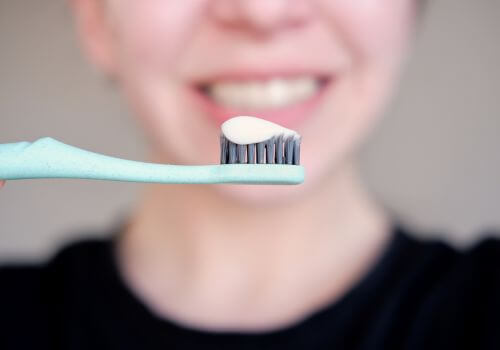Tooth sensitivity affects millions of people worldwide. That sharp, sudden pain many experience when consuming hot, cold, sweet, or acidic foods can disrupt daily life and make eating an uncomfortable experience. As dental professionals, we’ve seen patients try all sorts of things to minimize sensitivity. Let’s take a closer look at treatments and home remedies that actually work.
What Causes Tooth Sensitivity?
Tooth sensitivity happens when the protective layers of your teeth — enamel on the crown and cementum on the root — become worn down or damaged. This exposes the dentin underneath, which has tiny channels that lead directly to the nerves inside your tooth. When something triggers these nerves, you feel a sudden flash of pain.
Common causes of sensitive teeth include:
-
Brushing too hard
-
Grinding your teeth
-
Gum recession
-
Cracked teeth
-
Recent dental treatments
-
Tooth decay
-
Eating or drinking acidic foods and drinks
The best way to treat sensitivity is to understand what’s causing it. Different treatments work best for different causes, so identifying the underlying issue is the first step toward lasting relief.
Professional Treatments for Sensitive Teeth
Visiting your dentist is the best first step if you experience tooth sensitivity. During an exam, your dentist can identify the root cause of your discomfort and help create an appropriate treatment plan. Here are some of the most common professional treatment options:
Fluoride Treatments
Professional fluoride applications reduce sensitivity by strengthening tooth enamel. The concentrated fluoride used in dental offices provides more protection than over-the-counter products. As dental professionals, we often recommend regular fluoride treatments for patients with ongoing sensitivity issues.
Dental Bonding
Dental bonding protects vulnerable root surfaces when they become exposed due to gum recession. Your dentist applies a resin material to cover exposed roots, blocking access to the nerve endings that cause pain.
Gum Grafts
For severe gum recession, a gum graft might be necessary. This procedure involves taking tissue from another part of your mouth to cover exposed roots, protecting them from sensitivity triggers.
Root Canal
Dentists sometimes recommend root canals in cases where sensitivity is severe and other treatments have failed. This procedure removes the pulp and nerve inside the tooth, eliminating pain and infections without extracting the affected tooth.
Desensitizing or Bonding Products
Dentists can apply specialized bonding products that seal dentin tubules, blocking pathways to the nerve. These professional-grade products provide longer-lasting relief than home remedies.

Effective Home Remedies for Sensitive Teeth
While scheduling an appointment with your dentist is your best option when dealing with tooth sensitivity, there are some effective home remedies.
Desensitizing Toothpaste
Specialized toothpastes formulated for sensitive teeth contain potassium nitrate or strontium chloride to help block pain signals. Some also improve enamel health.
For best results:
- Use desensitizing toothpaste consistently for at least two weeks
- Apply a small amount directly to sensitive areas before bed
- Continue use even after symptoms improve
Soft-Bristled Toothbrush
Hard bristles can wear away enamel and damage gums, worsening sensitivity. Switch to a soft toothbrush, and brush using gentle, circular motions.
Salt Water Rinse
A simple saltwater rinse (½ teaspoon salt in 8 ounces of warm water) can reduce inflammation and bacterial growth, helping manage sensitivity caused by gum issues.
Green Tea
Green tea can reduce gum inflammation, thanks to its anti-inflammatory properties. Drinking unsweetened green tea or using it as a mouth rinse can help with sensitivity.
Proper Brushing Technique
How you brush matters as much as what you brush with. Using proper technique helps prevent enamel wear and gum recession. Hold your toothbrush at roughly a 45-degree angle to your gums, and brush using gentle strokes. Take care to brush all surfaces of your teeth, but avoid aggressive scrubbing motions that could damage your enamel.
Diet Modifications to Reduce Tooth Sensitivity
What you eat and drink affects your teeth’s sensitivity levels. Here are a few changes you can make to reduce tooth sensitivity:
Limit Acidic Foods and Beverages
Acidic foods and beverages like citrus, tomatoes, wine, and soda can erode enamel and worsen sensitivity. When consuming these, rinse your mouth with water afterward and wait 30 minutes before brushing. Sip acidic beverages through a straw to minimize contact with your teeth.
Increase Calcium-Rich Foods
Foods high in calcium help strengthen enamel. Include dairy products, leafy greens, almonds, and calcium-fortified foods in your diet.
Watch Out for Temperature Extremes
Very hot or cold foods can trigger sensitivity. Allow hot drinks to cool slightly and avoid eating cold food straight from the refrigerator or freezer. Be extra careful when enjoying cold treats like ice cream, since they tend to be among the worst triggers for sensitivity.
Preventive Measures for Long-Term Relief
The best way to handle sensitive teeth is to prevent sensitivity in the first place. Good habits help maintain oral health and can prevent future sensitivity.
Regular Dental Check-ups
Seeing your dentist every six months gives them a chance to detect and begin treatment for minor problems before they cause sensitivity.
Nightguard for Teeth Grinding
If you grind your teeth at night, a custom-fitted nightguard protects your enamel from wear, minimizing the risk of sensitivity.
Fluoride Mouthwash
Using fluoride mouthwash daily helps strengthen enamel and provides additional protection against sensitivity.
Proper Flossing
Flossing removes bacteria that could lead to gum disease and recession. Floss daily, but do so gently to avoid damaging delicate gum tissue.

When to See a Dentist About Tooth Sensitivity
While home remedies can help manage minor sensitivity, certain situations warrant immediate dental attention.
Contact your dentist right away if you experience any of these symptoms:
- Severe pain that persists for several days
- Sensitivity accompanied by swelling or discharge
- Pain when biting down
- Visible damage to teeth
- Sensitivity after a dental procedure that doesn’t improve within a few days
- Sudden onset of extreme sensitivity
These symptoms could indicate problems beyond simple sensitivity, such as infection, cracked teeth, or other serious dental issues requiring professional care. Schedule an appointment as soon as possible to lower the risk of worsening pain or further complications.
Combining Approaches for Maximum Relief
The best way to manage tooth sensitivity is by combining professional treatment with good home care. Working with your dentist to create a personalized plan can provide quick pain relief while protecting your teeth in the long run, rather than just masking the symptoms.
For instance, your dentist may recommend a professional fluoride treatment to strengthen your teeth, followed by daily use of desensitizing toothpaste at home. Making small changes to your diet can also help reduce sensitivity. Your dentist will guide you in choosing the right mix of professional care and home remedies based on your specific needs.
Final Thoughts
Tooth sensitivity doesn’t have to control your life or eating habits. With professional care, home remedies, and preventive measures, you can enjoy all your favorite foods and drinks pain-free. Whether your discomfort stems from enamel erosion, gum recession, or other factors, solutions exist to address your situation.
Don’t hesitate to contact your dentist if you experience persistent or severe sensitivity. Professional evaluation ensures you receive appropriate care for your oral health needs, and the sooner you seek treatment, the sooner you’ll find relief from tooth pain.

